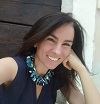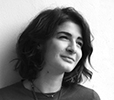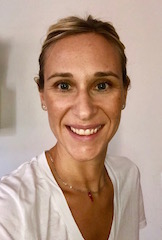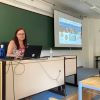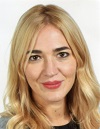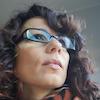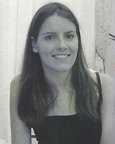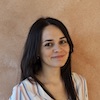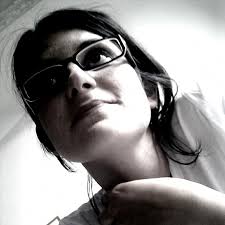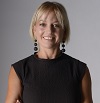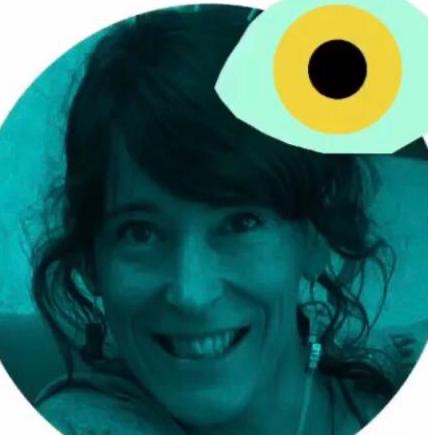Studying at the University of Verona
Here you can find information on the organisational aspects of the Programme, lecture timetables, learning activities and useful contact details for your time at the University, from enrolment to graduation.
Academic calendar
The academic calendar shows the deadlines and scheduled events that are relevant to students, teaching and technical-administrative staff of the University. Public holidays and University closures are also indicated. The academic year normally begins on 1 October each year and ends on 30 September of the following year.
Course calendar
The Academic Calendar sets out the degree programme lecture and exam timetables, as well as the relevant university closure dates..
| Period | From | To |
|---|---|---|
| Sem. 1A | Sep 26, 2022 | Nov 5, 2022 |
| Sem. 1B | Nov 14, 2022 | Dec 23, 2022 |
| Sem. 2A | Feb 13, 2023 | Mar 30, 2023 |
| Sem. 2B | Apr 11, 2023 | May 27, 2023 |
| Session | From | To |
|---|---|---|
| Sessione Invernale | Jan 9, 2023 | Feb 11, 2023 |
| Sessione Estiva | Jun 5, 2023 | Jul 22, 2023 |
| Sessione Autunnale | Aug 28, 2023 | Nov 23, 2023 |
| Sessione straordinaria invernale | Jan 8, 2024 | Feb 17, 2024 |
| Session | From | To |
|---|---|---|
| Sessione Estiva | Jul 10, 2023 | Jul 15, 2023 |
| Sessione Autunnale | Nov 6, 2023 | Nov 11, 2023 |
| Sessione invernale | Apr 2, 2024 | Apr 8, 2024 |
| Period | From | To |
|---|---|---|
| Festa di Ognissanti | Nov 1, 2022 | Nov 1, 2022 |
| Festività Della Immacolata Concezione | Dec 8, 2022 | Dec 8, 2022 |
| Vacanze natalizie | Dec 24, 2022 | Jan 8, 2023 |
| Vacanze di Pasqua | Apr 7, 2023 | Apr 10, 2023 |
| Festa della Liberazione | Apr 25, 2023 | Apr 25, 2023 |
| Festa del lavoro | May 1, 2023 | May 1, 2023 |
| Festa del Santo Patrono | May 21, 2023 | May 21, 2023 |
| Festa della Repubblica | Jun 2, 2023 | Jun 2, 2023 |
| Chiusura estiva | Aug 14, 2023 | Aug 19, 2023 |
Exam calendar
Exam dates and rounds are managed by the relevant Humanistic Studies Teaching and Student Services Unit.
To view all the exam sessions available, please use the Exam dashboard on ESSE3.
If you forgot your login details or have problems logging in, please contact the relevant IT HelpDesk, or check the login details recovery web page.
Should you have any doubts or questions, please check the Enrollment FAQs
Academic staff
 marialivia.alga@univr.it
marialivia.alga@univr.it
 tamara.bastianello@univr.it
tamara.bastianello@univr.it
 simona.carta@univr.it
simona.carta@univr.it
 marialuisa.costantino@univr.it
marialuisa.costantino@univr.it
 donato.desilvestri@univr.it
donato.desilvestri@univr.it
 elena.desilvestri@univr.it
elena.desilvestri@univr.it
Ganzerla Luca Giovanni Michelangelo
 lucagiovanni.ganzerla@univr.it
lucagiovanni.ganzerla@univr.it
 licia.landi@univr.it
licia.landi@univr.it
 maria.mori@univr.it
maria.mori@univr.it
 ilaria.mussini@univr.it
ilaria.mussini@univr.it
 alessandro.ongaro@univr.it
alessandro.ongaro@univr.it
 valentina.persici@univr.it
valentina.persici@univr.it
 stefania.pontrandolfo@univr.it
stefania.pontrandolfo@univr.it
 rosanna.vit@univr.it
rosanna.vit@univr.it
 barbara.zoccatelli@unitn.it
barbara.zoccatelli@unitn.it
Study Plan
The Study Plan includes all modules, teaching and learning activities that each student will need to undertake during their time at the University.
Please select your Study Plan based on your enrollment year.
1° Year
| Modules | Credits | TAF | SSD |
|---|
2° Year activated in the A.Y. 2023/2024
| Modules | Credits | TAF | SSD |
|---|
Indirect internship for childhood
- Indirect internship for childhood [Gruppo 1]
- Indirect internship for childhood [Gruppo 2]
- Indirect internship for childhood [Gruppo 3]
- Indirect internship for childhood [Gruppo 4]
- Indirect internship for childhood [Gruppo 5]
- Indirect internship for childhood [Gruppo 6]
- Indirect internship for childhood [Gruppo 7]
3° Year It will be activated in the A.Y. 2024/2025
| Modules | Credits | TAF | SSD |
|---|
| Modules | Credits | TAF | SSD |
|---|
| Modules | Credits | TAF | SSD |
|---|
Indirect internship for childhood
- Indirect internship for childhood [Gruppo 1]
- Indirect internship for childhood [Gruppo 2]
- Indirect internship for childhood [Gruppo 3]
- Indirect internship for childhood [Gruppo 4]
- Indirect internship for childhood [Gruppo 5]
- Indirect internship for childhood [Gruppo 6]
- Indirect internship for childhood [Gruppo 7]
| Modules | Credits | TAF | SSD |
|---|
| Modules | Credits | TAF | SSD |
|---|
Legend | Type of training activity (TTA)
TAF (Type of Educational Activity) All courses and activities are classified into different types of educational activities, indicated by a letter.
Basic Elements of the Educational Work (2022/2023)
Teaching code
4S008115
Teacher
Coordinator
Credits
6
Language
Italian
Scientific Disciplinary Sector (SSD)
M-PED/01 - PEDAGOGY, THEORIES OF EDUCATION AND SOCIAL EDUCATION
Period
Sem. 1A dal Sep 26, 2022 al Nov 5, 2022.
Learning objectives
Knowledge and understanding 1. Reflecting on the meaning of educational work and on its fundamental structures, issues, problems and concepts that can be found in every educational experience. 2. Kowing and understanding problems, theories, processes, meanings and actors of the educational relationship. 3. Knowing and understanding the fundamental elements of education: history, objectives, methods and languages of educational action. 4. Knowing and understanding sectors and specificity of the educational work. Applying knowledge and understanding 1. Knowing how to apply, in concrete situations, the theoretical and methodological elements, which are essential in the design of educational projects. 2. Designing projects and educational interventions in accordance with the identified needs and he different working contexts. 3. Obtaining educational competences related with the multiple differences and diversities of the specific context.
Prerequisites and basic notions
The course does not require any special prerequisites.
Program
PROGRAM: 1. Educational challenges in contemporary society: - need for education and pedagogy. ¬- changes and political, work and cultural crisis; - placement of pedagogy among the educational sciences; - various sectors of pedagogical intervention; 2. Centrality of pedagogy and education in contemporary society: - educability, education and pedagogy; - founding concepts of pedagogical discourse and interdisciplinary nature of pedagogy; - formal elements of pedagogy: purpose, method, means, contents, educator-pupil relationship, environment. 3. Educational professions and pedagogical training: - role of the professional educator and pedagogist according to L 205 of 2017; - Contents and objectives of the various pedagogical teachings; - pedagogical currents: pedagogical personalism, problematicism, empiricism; - Pedagogical responses to the challenge of pluralism and complexity.
Bibliography
Didactic methods
Classroom meetings involve the use of lectures, group discussions and small-group exercises. For exam preparation, students should use the following texts.
general part:
- PORTERA, A., BÖHM W., SECCO, L., Educabilità, educazione e Pedagogia nella società complessa. Lineamenti introduttivi. UTET, Torino, 2007.
parte monografica
- IORI, V. (a cura di), Educatori e Pedagogisti. Senso dell’agire educativo e riconoscimento professionale. Erickson, Trento, 2018. PLEASE NOTE: CHAPTERS OF THE IORI BOOK TO BE STUDYED FOR THE EXAMINATION (only the following chapters are studied):
CAP.1 Le professioni educative e la formazione pedagogica (Vanna Iori)
CAP. 5 L’insolita minestra: riscattare il senso dell’esperienza quotidiana (Daniele Bruzzone)
CAP. 7 Instabili equilibri: la relazione educativa tra prossimità e differenza (Mario Mapelli)
CAP. 8 Nella mia fine è il tuo inizio: il legame paradossale (Alessandra Augelli)
Appendice (a cura di Vanna Iori); the appendix is a contribution to be studied and will be examined.
- BAUMAN, Z. & PORTERA, A., Education and Intercultural Identity. Routledge, London, 2020 (oppure: TRAMMA, S., L’educatore imperfetto. Senso e complessità del lavoro educativo. Carocci, Roma 2018).
The course will be supported by specific exercises, which will form an integral part of the examination programme. One of the following texts (which must not have been used for other examinations) must be used for this practical part:
- * KANIZA, S. & MARIANI, M. (a cura di), Introduzione alla pedagogia generale. Pearson, Milano, 2020.
- * BALDACCI, M., Trattato di pedagogia generale. Carocci, Roma, 2018.
- * MORIN, E., I sette sapere necessari all’educazione del futuro. Cortina, Milano, 2001.
- BERTAGNA, G. (a cura di), Educazione e formazione. Studium, Roma, 2018.
- ZOLETTO, D., A partire dai punti di forza. Popular Culture, eterogeneità, educazione. Franco angeli, Milano, 2019.
- MORIN, E., La testa ben fatta. Riforma dell’insegnamento e riforma del pensiero. Cortina, Milano, 2000.
- DELORS, J., Nell’educazione un Tesoro. Armando, Roma, 1997.
- GRANESE, A., Istituzioni di pedagogia generale. CEDAM, Padova, 2003.
- BRUNER, J., La cultura dell’educazione. Feltrinelli, Milano, 1997.
- *SIGURTÀ BRAIBANTI, S, La bellezza: luogo d’incontro. Edizioni dell’Orso, Alessandria, 2019
- BAUMAN, Z., & MAZZEO R., Conversazioni sull’educazione. Erickson, Trento, 2012
- CONTINI, M., La comunicazione intersoggettiva fra solitudini e globalizzazione. La Nuova Italia, Firenze, 2002.
- PORTERA, A., Tesori sommersi. Emigrazione, identità, bisogni educativi interculturali. F. Angeli, Milano, 2016.
- PORTERA, A., LA MARCA A., CATARCI M., Pedagogia interculturale. La Scuola, Brescia, 2015.
- GARDNER, H., Sapere per comprendere. Feltrinelli, Milano, 1999.
- MILANI, L., Lettera a una professoressa. Libreria editrice fiorentina, Firenze
- DELORS, J., Nell’educazione un Tesoro. Armando, Roma, 1997.
- MARITAIN, J., L’educazione al bivio. La Scuola, Brescia, 1963.
- * BREZINKA, W., L’educazione in una società disorientata. Armando, Roma, 1989.
- PERETTI, M., Valori perenni e pedagogia. La Scuola, Brescia, 1984.
- RICOEUR, P., La Persona. Morcelliana, Brescia, 1997.
BENASAYAG, M. & SCHMIT, G., L’epoca delle passioni tristi. Feltrinelli, Milano, 2008.
- *FRABBONI, F., PINTO MINERVA F., Manuale di pedagogia generale. Laterza, Roma-Bari, 2000.
- NUSSBAUM, M.C., Non per profitto. Il Mulino, Bologna, 2011.
- BECK, U., I rischi della libertà. L’individuo nell’epoca della globalizzazione. Il Mulino, Bologna, 2000.
* Recommended text for non-attending students. Other texts may only be chosen after consultation with the lecturer.
Learning assessment procedures
The educational and evaluation modalities of learning will be communicated at the beginning of the lessons. The exam aims at verifying the level of achievement of the educational objectives previously mentioned. The exam is oral on all the textbooks.
Evaluation criteria
During the test the knowledge of the exam program, the critical-reflective capacity with respect to the concepts and theories that are exposed, the use of the correct pedagogical language, the ability to connect theories and concepts to hypotheses of practical prefigurations will be verified.
Criteria for the composition of the final grade
Oral interview lasting approximately 20 '. The texts to be studied are the same for attending and non-attending students, as well as for Erasmus students.
Exam language
italiano (o inglese)
Type D and Type F activities
I 12 crediti liberi a scelta dello studente (ambito “D”) hanno lo scopo di offrire allo studente la possibilità di personalizzare il proprio percorso formativo permettendo di approfondire uno o più argomenti di particolare interesse legati al proprio percorso accademico.
Per garantire questo fine, si invitano gli studenti a rispettare le seguenti indicazioni per il completamento di tale ambito:
- almeno un’attività formativa erogata come esame universitario (con relativo voto in trentesimi) - è possibile scegliere fra i vari insegnamenti del proprio CdS non sostenuti in precedenza, anche quelli dell'altro curriculum, fra i vari insegnamenti degli altri CdS di I° livello afferenti al Dipartimento di Scienze Umane ed anche fra i vari insegnamenti dei CdS di I° livello ad accesso libero erogati dall'Ateneo di Verona;
- massimo 6 cfu relativi a competenze linguistiche (oltre a quelli previsti dal PdS);
- massimo 6 cfu relativi a competenze informatiche (oltre a quelli previsti dal PdS);
- massimo 4 cfu di tirocinio, (oltre a quelli previsti dal PdS);
- massimo 6 cfu di attività laboratoriale/esercitazioni (compresi quelli previsti nei PdS per l’ambito) di regola viene riconosciuto 1 cfu ogni 25 ore di attività;
- massimo 6 cfu di attività seminariale/convegni/cicli di incontri/formative in genere (sia accreditata dal Dipartimento di Scienze Umane che extrauniversitaria) – di regola viene riconosciuto 1 cfu ogni 8 ore di partecipazione e/o 2 giornate salvo diversamente deliberato;
- non vengono valutate attività svolte in Erasmus non inserite nei Learning Agreement.
Altre informazioni sono reperibili nella Guida per i crediti liberi che è possibile trovare qui.
COMPETENZE TRASVERSALI
Scopri i percorsi formativi promossi dal Teaching and learning centre dell'Ateneo, destinati agli studenti iscritti ai corsi di laurea, volti alla promozione delle competenze trasversali:
https://talc.univr.it/it/competenze-trasversali
| years | Modules | TAF | Teacher |
|---|---|---|---|
| 1° 2° 3° | Conflict. Recognize, prevent, manage | D |
Paola Dal Toso
(Coordinator)
|
| 1° 2° 3° | EXPOSED BODIES - Diotima seminar | D |
Rosanna Cima
(Coordinator)
|
| 1° 2° 3° | Il teatro dell'oppresso | D |
Paola Dusi
(Coordinator)
|
| 1° 2° 3° | If bees are few. Pedagogy of movement | D |
Rosanna Cima
(Coordinator)
|
| 1° 2° 3° | Le 16 attitudini per una vita felice | D |
Paola Dusi
(Coordinator)
|
| 1° 2° 3° | Movement medicine | D |
Paola Dusi
(Coordinator)
|
| 1° 2° 3° | X National Conference of the Italian Society of Applied Anthropology (SIAA) “Rethinking Sustainability through Applied Anthropology” | D |
Stefania Pontrandolfo
(Coordinator)
|
| years | Modules | TAF | Teacher |
|---|---|---|---|
| 1° 2° 3° | Conflict. Recognize, prevent, manage | D |
Paola Dal Toso
(Coordinator)
|
| 1° 2° 3° | X National Conference of the Italian Society of Applied Anthropology (SIAA) “Rethinking Sustainability through Applied Anthropology” | D |
Stefania Pontrandolfo
(Coordinator)
|
| years | Modules | TAF | Teacher |
|---|---|---|---|
| 1° 2° 3° | Gnoseology and Metaphysics Workshop | D |
Davide Poggi
(Coordinator)
|
| 1° 2° 3° | OMeGA - Horizons, Models and Assisted Parenting | D |
Alessandra Cordiano
(Coordinator)
|
| 1° 2° 3° | Se le api sono poche-pedagogia del movimento (ed. 2023) | D |
Rosanna Cima
(Coordinator)
|
| years | Modules | TAF | Teacher |
|---|---|---|---|
| 1° 2° 3° | Gnoseology and Metaphysics Workshop | D |
Davide Poggi
(Coordinator)
|
| 1° 2° 3° | OMeGA - Horizons, Models and Assisted Parenting | D |
Alessandra Cordiano
(Coordinator)
|
| 1° 2° 3° | University and DSA: Methods and strategies for studying and studying at university | D |
Ivan Traina
(Coordinator)
|
Career prospects
Module/Programme news
News for students
There you will find information, resources and services useful during your time at the University (Student’s exam record, your study plan on ESSE3, Distance Learning courses, university email account, office forms, administrative procedures, etc.). You can log into MyUnivr with your GIA login details: only in this way will you be able to receive notification of all the notices from your teachers and your secretariat via email and soon also via the Univr app.
Graduation
Documents
| Title | Info File |
|---|---|
|
|
pdf, it, 99 KB, 13/10/23 |
|
|
pdf, it, 101 KB, 10/04/24 |
List of theses and work experience proposals
| theses proposals | Research area |
|---|---|
| Ambienti e contesti di lavoro con minori | Various topics |
| Analisi dei personal network di sostegno | Various topics |
| comunicazioni relative alla tesi | Various topics |
| Il teatro come contesto educativo | Various topics |
| I processi di globalizzazione culturale nella società contemporanea | Various topics |
| La social network analysis applicata allo studio dei contesti educativi | Various topics |
| L'educatore ed i progetti europei | Various topics |
| L'impegno associativo in ambito educativo | Various topics |
| Politiche sociali e contesti educativi | Various topics |
| Progetti di collaborazione con le istituzioni scolastiche | Various topics |
| PROPOSTE TESI AMBITO GEOGRAFICO | Various topics |
| Scuola e capitale sociale | Various topics |
Linguistic training CLA
Gestione carriere
Student mentoring
Practical information for students
Documents
| Title | Info File |
|---|---|
|
|
pdf, it, 325 KB, 02/05/23 |
|
|
pdf, it, 212 KB, 02/05/23 |
|
|
pdf, it, 131 KB, 02/05/23 |
Stage e Tirocini
Le ulteriori attività formative (crediti F) sono interamente coperte dall’attività di tirocinio “indiretto” (1 cfu) da svolgersi nel secondo anno e di tirocinio “diretto” (14 cfu) da svolgersi presso enti convenzionati per un numero complessivo di 15 cfu (375 ore). Chi è iscritta/o al curriculum servizi per l’infanzia è tenuta/o a svolgere il tirocinio presso nidi e servizi per la prima infanzia per almeno il 50% delle ore.
Il tirocinio professionalizzante (375 ore, pari a 15 cfu), è obbligatorio sia nella sua forma diretta che indiretta.
Il tirocinio indiretto, della durata di 25 ore a frequenza obbligatoria al 75%, si svolge in Università per 20 ore e in forma di lavoro individuale per 5 ore e consiste in un accompagnamento iniziale delle/degli studenti da parte dei tutor attraverso un percorso formativo dotandoli di conoscenze e strumenti adeguati a osservare, comprendere e rielaborare criticamente l’esperienza di tirocinio nei servizi educativi e ad affrontare il tirocinio negli enti con metodo e consapevolezza. Il percorso, da attuare in gruppi da 20-25 persone sotto la supervisione di un tutor, risponde alle esigenze costantemente espresse sia dalle/dagli studenti stessi sia dalle parti sociali che dai referenti degli enti convenzionati.
Il tirocinio diretto si propone di raggiungere i seguenti obiettivi:
- fare esperienza diretta di attività professionali, che richiedono un livello di preparazione al lavoro educativo;
- approfondire in particolare il rapporto tra preparazione teorica, acquisita mediante lo studio, ed esperienza pratica, tra mondo del sapere e della cultura e mondo del lavoro e delle professioni;
Al termine del tirocinio diretto lo studente deve presentare una relazione scritta, nella modalità concordata con il tutor accademico.
Nuove Linee Guida per il tirocinio di Scienze dell'educazione.
- Tutte le informazioni in merito agli stage per futuri studenti sono disponibili alla pagina Stage e tirocini.
- Tutte le informazioni in merito agli stage per studenti iscritti sono pubblicate in MyUnivr - come fare per - stage e tirocini.
- Tutte le informazioni in merito agli stage per le aziende sono disponili alla pagina Stage e tirocini per azienze.
Documents
| Title | Info File |
|---|---|
|
|
pdf, it, 302 KB, 16/07/21 |
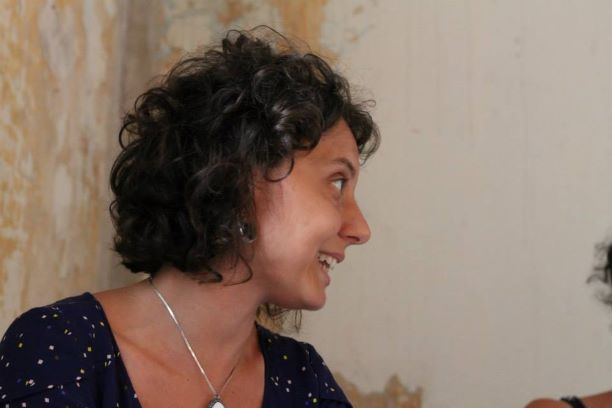
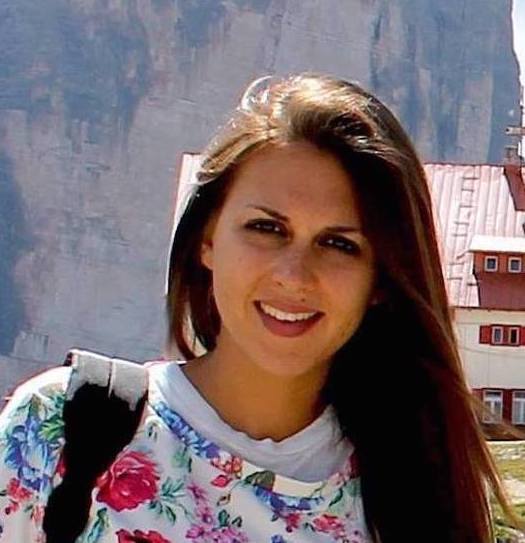
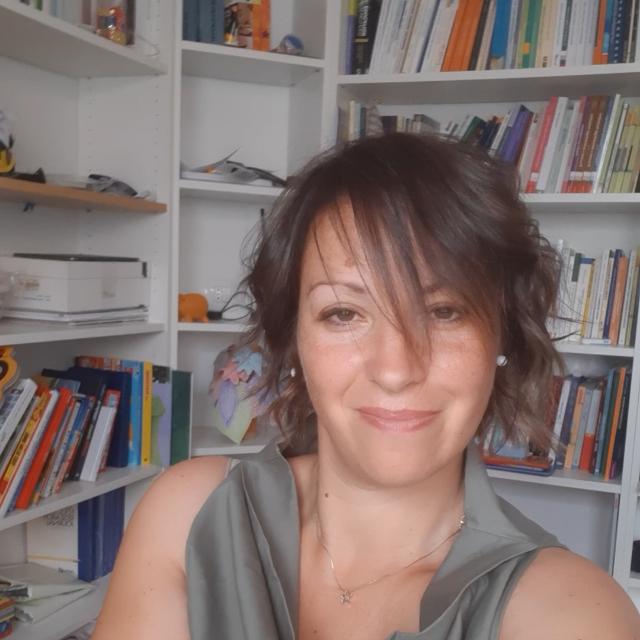
 045 8028383
045 8028383


